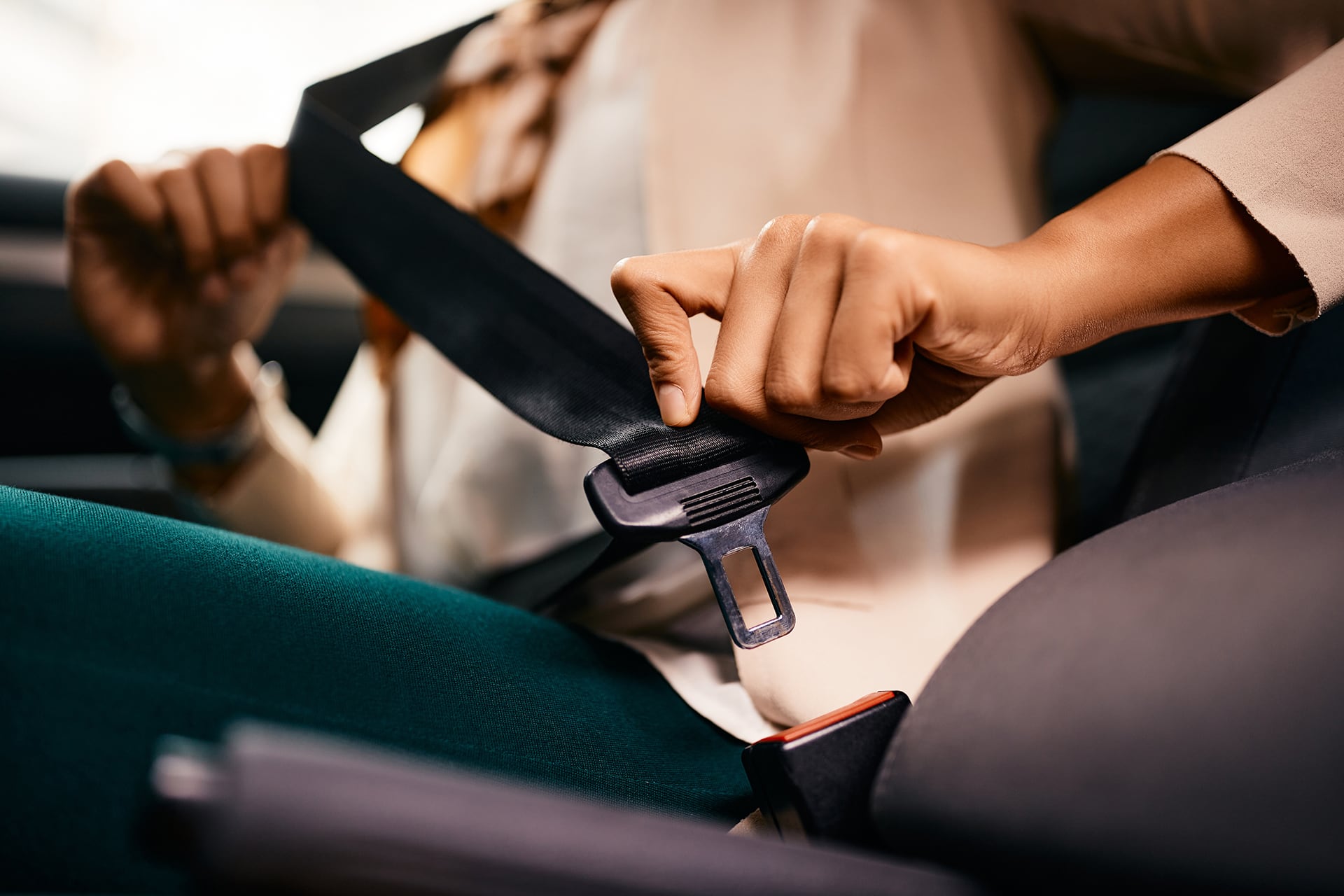It’s National Seat Belt Day, so we’ve created a fact file that highlights the importance of UK seat belt laws.
According to road casualty statistics published by the Department for Transport, of the 682 people who died in collisions in cars in Britain, an estimated 30% were not wearing a seat belt – the highest level since records began. It’s no wonder the use of seat belts is being encouraged worldwide to help reduce the number of injuries and fatalities on the road.
We’ve compiled five key facts about seat belts and how invaluable they can be to road safety. Strap yourselves in – here’s what you need to know.
1. Wearing seat belts has only been law for all passengers since the 1990’s
So, when did seat belts become law in the UK? It’s been compulsory for all new cars to have seat belt fittings since 1966, however wearing your seat belt didn’t become a legal requirement for all passengers until 1991. This is despite numerous campaigns for it in the decades leading up to this.
Although early iterations of the seat belt were used in gliders, American inventor Edward J. Claghorn patented the first seat belt in 1885. It gained popularity as cars became faster decades later, until eventually, the three-point seat belt entered the picture in 1959. This was invented by Volvo engineer Nils Bohlin and was designed to adapt to the shape of the human body.
2. Many people still don’t abide by UK seat belt laws
Road safety charity Brake states that wearing a seat belt can reduce the risk of death in a serious crash by up to 50%. Despite this, a worrying amount of people still don’t wear them. According to The Department for Transport, 94.8% of all drivers were observed using a seat belt in 2021, compared to 96.5% in 2017.
Some age groups are more likely to break UK seat belt laws than others, however. The government’s ongoing road safety campaign THINK! reported that 17-34 olds have the lowest seat belt-wearing rates. It’s thought that people tend to not wear a seat belt for shorter journeys as they view this as being less risky.
3. You can be fined up to £500 for not wearing a seat belt
Because wearing a seat belt is a legal requirement, it means that you could be given a fine if you don’t comply. Drivers caught not wearing a seat belt can be fined up to £500.
On top of this, drivers are also responsible for making sure that passengers aged below 14 years wear a seat belt. Otherwise, you could be issued with the same £500 fine for not monitoring this. UK seat belt laws are just as much about protecting others as they are about protecting yourself.
4. In some cases, you’re exempt from wearing one
So, when may you drive without wearing your seat belt? Although you might not expect it, there are some exceptions to UK seat belt laws. Here are some examples:
- If you’re someone with a ‘Certificate of Exemption from Compulsory Seat Belt Wearing’ from your doctor
- If you’re a driver who’s reversing or supervising a learner who is reversing
- While in a vehicle being used for police, fire and rescue services
- When you’re a passenger in a trade vehicle and you’re investigating a fault
- If you’re a licensed taxi driver or driver of a private hire vehicle who is carrying passengers.
5. Dog ‘seat belts’ can also help you stay safe
Pet passengers need to be kept safe while driving too. Rule 57 in the highway code states that dogs and other animals should be suitably restrained inside the vehicle as it is unsafe to let them move freely while the car is moving. On top of this, if you were involved in an accident, they could incur serious or even fatal injuries.
Assuming your dog is happy to travel in the car with you, there are ways to help restrain them. If your pooch doesn’t enjoy being in a crate, you can get pet harnesses, often referred to as ‘dog seat belts’. These are fitted around your dog and attached to the seat belt.
Stay protected with short-term insurance with Dayinsure
While seat belts help to physically protect drivers in road accidents, insurance is there to help cover your finances. Dayinsure is one of the UK’s leading providers of short-term car insurance, assisting those who need insurance for as little as 1 hour. Alternatively, you can choose a policy that lasts up to 30 days. Check out what past customers have said on Trustpilot, where we have over 45,000 five-star reviews.



